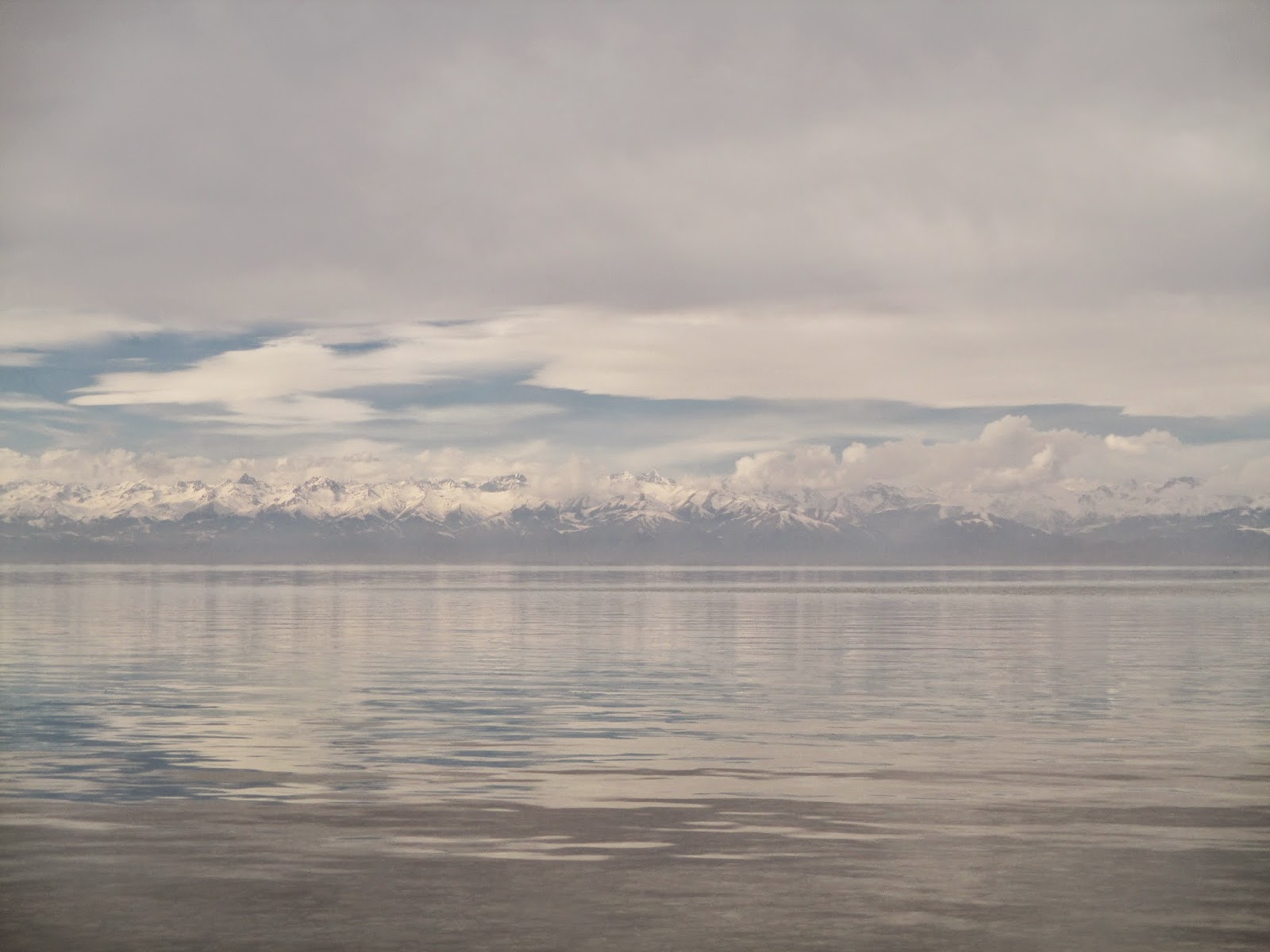Kazakhstan. Last country before home.
After a week in Almaty we begin the longest hitchhiking neither of us
have ever done. More than 1200 km to cross the country from the very
south of the ancient capital until Astana.
Almaty was normal. That's the
best word to describe it. The other would be boring.
Nothing really fascinating about this big modern city. It could be
anywhere in Europe. To save it a bit, I could add that if it's not so
interesting to visit, it must be pleasant to live in. The city is
clean, green, young, active, and the level of life in this place
reaches much higher than many place of Central Asia. But soon we left
it to hit the road one last time.
When
we imagined hitchhiking those almost 1300 km, we wondered a lot how
we would make it. It went actually easier than we thought! Soon after
starting, a young and friendly man took us for free until Balkhash,
roughly half way between Almaty and Astana and
near the lake of the same name.
Actually he would have taken us until Astana, but we wanted to make a
stop, and enjoy the road, rather than to drive it at once.
And
what a road! Most of the road from Almaty to Balkhash is a desert.
Wide and plain. In all four horizons one can see kilometers of
nothing. Not a man, not a house, not a tree. Sometimes a rare eagle
spread its fast shadow on the dry ground. Only once, on the side of
the road, four poor houses offer tea to the cars that stop. ''There's
no network here'' says a woman who must have endured the hottest
summers and the coldest winters. Behind the small sheds and wagons,
altogether four of them, four toilet houses are standing lonely in
the middle of the windy fields. I am thinking about the president's
determination to make Kazakhstan enter the top 30 highest developed
countries of the world before 2050.
Balkhash
lake is the largest of Central Asia since the Aral sea is shrinking.
It spreads in a long snakelike shape and has also the peculiarity to
be half of fresh water (in the west) and half of saline water (in the
east). Closer we get to the lake, the more people we see. The more
camels too, carrying their furry two-humped backs in the dry land.
And the more policemen, who are really everywhere in Kazakhstan.
Nothing really grows here. Except
marijuana. Long time ago, when no one knew such Kazakhstan, Chu
valley was already known in Russia for that reason,
tell our driver. This might be one more reason for policemen to stand
here.
Arriving
in the city of Balkhash we soon get caught by a half crazy woman
called Lastochka who still shows helpful as she finds us a cheap
place where to stay a couple of nights. We rented a flat from two
overdressed young ladies with heavy make up. Do
not drink in the streets, come to drink in the flat,
one of them warns us while closing the hole in the window with a
tape. We spent so two nights in this place, and one incredibly hot
day (around 35°).
We
looked for freshness near the lake where I had a swim in sensibly
cooler water (probably between 15 and 20°).
The
next day we were back in the outskirts of Balkhash, thumbs up. We
didn't wait long for a car to pick us up. It was a van full of dry
fishes smelling mouthwatering and strong. We travelled the remaining
600 km to Astana, the new capital of Kazakhstan.































